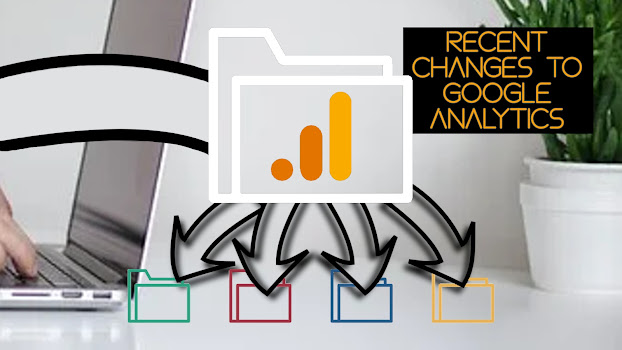Using Multiple Channels to Maximize Leads
Using
Multiple Channels to Maximize Leads
You may hear a few different terms for the idea of using
multiple channels to interact with people and to build leads; integrated
marketing, multichannel marketing strategy, omnichannel marketing. Other marketers
may disagree with me, but these are all essentially the same thing, with very
slight differences if any. Basically, the idea is to use multiple channels with
a consistent brand image and message across them. These channels need to work
together in one cohesive strategy to maximize lead generation. I think the hang
up is that there is a difference between simply being present on multiple
channels and having an overarching consistency and strategy across channels.
With the changes, fueled by technological advancement, in
how people interact with businesses over the last 20 years, it has become a
necessity to have a presence on multiple channels. People expect to see
businesses they want to do businesses with in multiple places across the web
and being there can help you build trust. It’s important to not give people
mixed messages across channels, this can actually damage your image and make
your company seem less trustworthy. This makes having a cross-channel strategy
crucial to lead generation.
Another reason it’s important to have a multiple channels
for lead generation is that a lot of these channels are governed by outside
forces that can make changes that we aren’t prepared for. If we rely too much
on one source and something happens that adversely effects our ability to
create leads, we are in for some trouble. For example, in 2016 Google had an
update that removed the sidebar ads. This significantly reduced available ad
space on search queries and consequently caused CPC’s to substantially increase.
Those who relied solely on Google Ads for lead generation were blind-sided.
Creating a multichannel lead generation strategy creates a safety net by
allowing us to adapt quickly when things that are out of our control happen.
So how can we build an effective multichannel presence to
give potential customers a cohesive and quality experience? This will look
different between industries and even between businesses within an industry.
Here are some questions to ask yourself before developing your strategy:
·
What sets your business apart from your
competitors?
·
What does your ideal customer look like?
·
How do you want to present your business and
what will be your overarching message?
The answers to these questions should give some insight into
what channels you want to focus your efforts. There will be some overlap, but
different channels attract different demographics. You want to key in on where
your ideal customers hang out. Having a one size fits all approach to how
different channels are treated is a mistake a lot of companies fall into.
Different channels require different strategies, however they should all tie
back to your unifying brand image and message. For example, content that works
great on Instagram could not be applied to search ads, but you can deliver the
same message in both channels.
Here is a list of some of the more common online marketing
channels
·
Email Marketing
·
Content Marketing
·
SEO
·
Website
Whichever channels you choose, remember that repetition
legitimizes. This means that the more people see your brand, the more
legitimate your brand is perceived. This also means that the message you choose
is really important because you will want to use it repeatedly. The trick,
which is easier said than done, is to ride the line of familiar and new. For
example, Snickers has used the “You’re Not You When You’re Hungry” message for
10+ years. They have used this message to create lots of content that presents
the same message in new and interesting ways.
There are a few challenges that you need to think about for
your multichannel strategy. The first would be attribution.
You’ll want to figure out a way to assign credit for
conversions to determine which channels
are performing and which are not. This is related to which key performance
indicators you want to use. The KPI’s you choose should be directly tied to
your marketing objectives. You will also want to figure out cross-channel
remarketing. Having people who have checked your business out on one channel
see you on other channels. Determining how to set up your funnel
so that leads across all of your channels can collect and work their way into
becoming customers is another thing to think about. What path will your leads
take to conversion?
One of the best ways to get insights into doing this right
is to study those who are already successfully marketing across channels. A lot
of the bigger companies have this nailed; Coca-Cola, Disney, Apple, etc.
Definitely go check out the way they are doing their marketing. It is important
to note that these companies have vast resources that most companies do not,
but we can still learn from them. Just apply what you see working into the 2 or
3 channels you have chosen to focus on.
One brand that I think is doing a really good job is Old
Spice. They have a consistent look across platforms and channels, from their
Instagram to their website. A number of years ago they wanted to change how
people perceived their brand, which was mostly thought of as a product for old
men. They began using humor in their advertising that was targeted at a younger
demographic, millennial men. A lot of their commercials and content became a
lot weirder,
which appealed to those they wanted become their new demographic, and it
worked. This style has presented itself in all of their channels.
Really when it comes down to it, knowing your ideal customer
will determine how you set up your multichannel strategy. You will want to
focus your attention on the channels that will help you reach them, your
message and image should be designed to appeal to them, and the rest of it is
structural and analytical.
Direct Placement, LLC is a digital
marketing agency that offers a variety of digital ads and services. Our trained and certified team of Account Managers and Internet
Marketing Advertisers is dedicated to helping your business achieve its
advertising goals. They will work diligently with you to help ensure our
advertising efforts are tailored to your specific needs. Contact Direct Placement, LLC today or visit our
website to discover how we can start transforming your business one click at a
time! You can also follow us on Facebook, Twitter, or Blogger for more online marketing related content.
Direct
Placement makes digital marketing easy. Your Marketing Pro is
a Google Premier Partner and ready to boost your ad to
the top of search results. Get started now.







Comments
Post a Comment